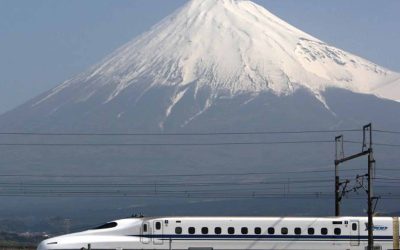Everyone knew last month's privatization of Indonesian airline Garuda had gone badly, but exactly how badly is only now coming into focus. Previously it appeared that the big problem was the government's failure to price the initial public offering correctly—the range of 750 to 1100 Indonesian rupiah (9 to 12 cents) per share was well in excess of what the underwriters had advised, with the predictable result that 40% of the shares went unsubscribed and the price tanked 17% in the first day of trading.
Now, however, an even worse effect is coming into view: The episode appears to be deterring Jakarta from pushing forward with more privatizations. Witness remarks this week from Deputy Minister for State-Owned Enterprises Pandu Djajanto, as reported by the Financial Times, that the government plans only one other privatization this year, down from the five to 10 it had previously intended. This confirms a policy shift observers had predicted.
Indonesia's economy is falling victim to a long-running controversy over the pricing of privatization IPOs. Garuda's sin was asking for too much, but previous episodes have stirred controversy for asking for too little. Take last November's listing of Krakatau Steel, which raised 2.68 trillion rupiah ($299 million). Many concluded that the government could have gotten more given that the shares shot up some 50% on the first day of trading.
But as much fun as political food fights about fair valuation are, they miss the more important economic reasons for privatization. Over the longer term, the sale price of the asset is only a small part of the value a privatization creates for a government and society.
Consider Maruti-Suzuki, a joint venture formed in 1983 between Japan's Suzuki and a state-owned Indian carmaker. The government offloaded its shares in the venture in stages starting in 1992. The company grew stronger, especially once Suzuki acquired majority control in 2002. "Decision-making became smoother and more focused" after that, Maruti's former managing director and current chairman R.C. Bhargava says, thanks to which costs were trimmed. Suzuki helped turn around the firm after record losses in 2001. More importantly, once Suzuki was in the driver's seat, it was willing to rev up R&D and introduce Japanese models that proved very popular in the Indian market. Maruti is now one of India's best brands.
Also consider Taiwan's Chunghwa, the state-owned telecom firm from which Taipei began divesting in 2000. By the late 1990s, deregulation of the telecom industry had undermined Chunghwa's earlier dominance; compared to its competitors, the "national champion" found itself stifled by political diktat. Once the government started shedding control, the firm trimmed its labor force and improved its marketing and customer service. For the past two years, Chunghwa has been voted one of Taiwan's best-managed companies in FinanceAsia's polls of 300 regional institutional investors.
In both cases, the pricing was controversial. After New Delhi divested 10% of Maruti in 1992, political opponents harangued then-Finance Minister Manmohan Singh for selling too cheaply. And in 2003, securities analysts worried that the automaker's IPO was too expensive. With Chunghwa, Taipei insisted on maximizing its proceeds in multiple stages of the privatization process. More than one public offering met with a lukewarm market response, with the government criticized for setting too high a price. But the controversies turned out to be irrelevant in the larger scheme of things.
Regardless of the controversy, the lasting benefits of this process are undeniable in terms of encouraging growth and, yes, tax revenues. It's not just Maruti and Chunghwa. Cross-country evidence compiled by William Megginson at the University of Oklahoma and others shows how privatization frees trapped assets to be put to growth-producing uses bureaucrats could never envision. On average, a firm's productivity increases by 20%.
The danger is that politicians will lose sight of this fact amid pricing controversies. For instance, the government of Mr. Singh, India's prime minister since 2004, now presents state asset sales as an important leg of its fiscal strategy, which involves expanding welfare programs. This practically begs his opponents to question whether the government is "getting enough." Once the political debate gets sidetracked in this fashion, it jeopardizes future privatizations, as Indonesia is discovering.
It takes political will to keep the larger picture in mind, since pricing will always be controversial. Price too low, and policy makers will worry about fiscal losses while cronyism will become a concern for the public. Price too high, and investors could be dissuaded from buying the stock—emboldening political opponents of privatization.
The choice of asset pricing, in effect, becomes exactly the kind of strategic business decision that governments are fundamentally bad at. That's the very reason governments made another choice—to hand over that asset to the market—in the first place.


